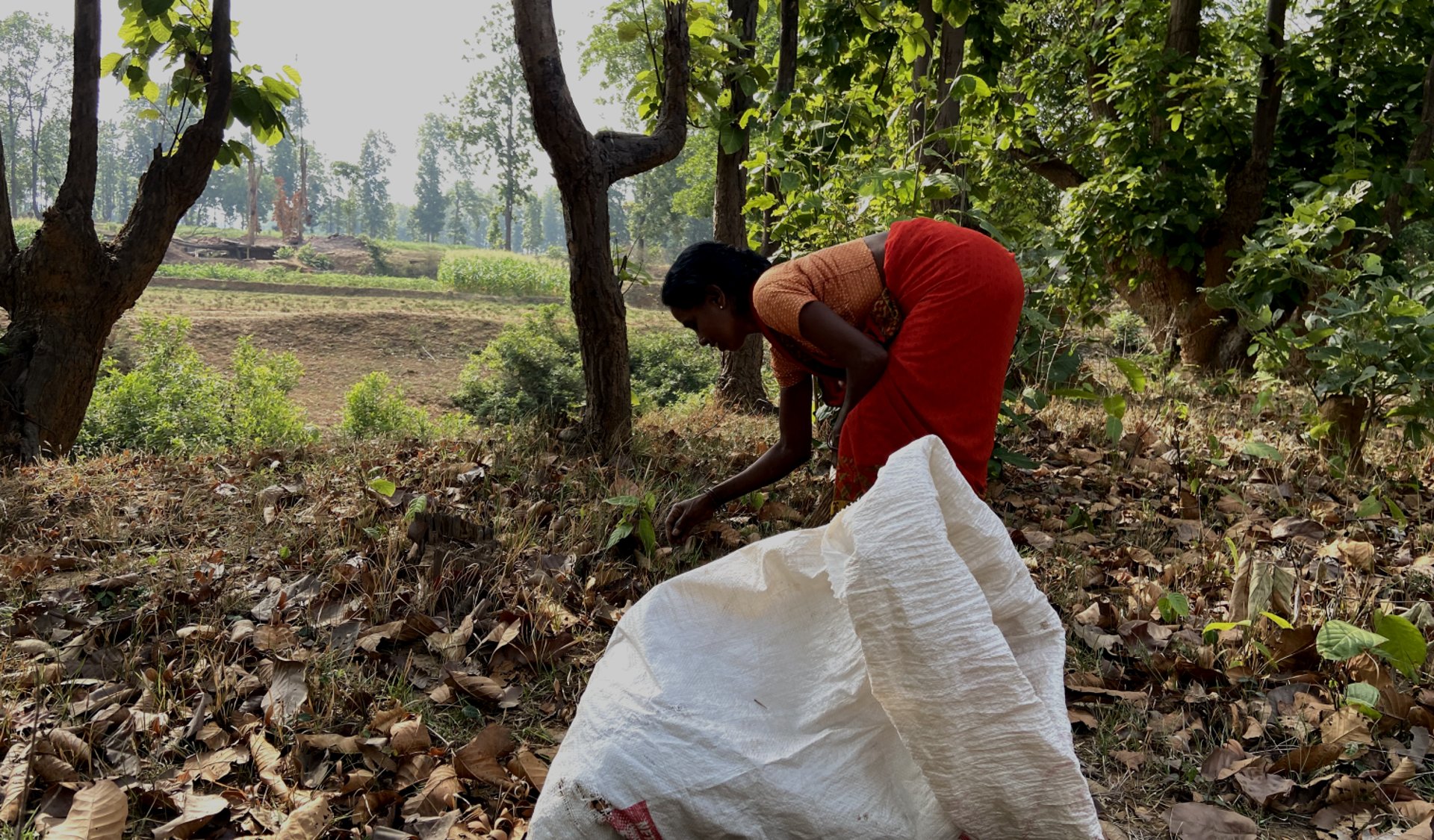
25.06.24
Women-Led Farmer Producer Companies Successfully Sell Sal Seeds to AAK India in Gumla and Ranchi Districts, Jharkhand
In 2021, ISB signed a Memorandum of Understanding (MoU) with the Government of Jharkhand to promote a sustainable and resilient forest economy built on secure tenure rights guaranteed under the Scheduled Tribes and Other Traditional Forest Dwellers (Recognition of Forest Rights) Act, 2006—commonly referred to as the Forest Rights Act (FRA). The premise behind this initiative is that tenure security incentivises communities to sustainably manage and protect their forest resources, thereby ensuring long-term economic benefits.
Recently, a successful collaboration involving IoFE, Jharkhand State Livelihood Promotion Society (JSLPS), Jharkhand Jungle Bachao Andolan (JJBA), Professional Assistance for Development Action (PRADAN), and industry partner AAKIPL was formed. This partnership leveraged the organisational strengths and expertise of these organisations as well as women-led FPCs to facilitate the collection, aggregation, and sale of sal seeds, thereby generating local wealth. On 24 June 2024, a truck carrying 10,900 kg of sal seeds reached the AAKIPL factory in Bilaspur, generating earnings of ₹2,57,529 for the Ghaghara Women Producer Farmer Company Limited, a women-led collective based in Gumla. Although the aggregation process was carried out by three partners—JJBA, PRADAN’s women-led FPC, Gumla Mahila Kisan Swavlamban Trust (GMKST), and JSLPS—the sale was processed through PRADAN’s nodal FPC, the Ghaghara Women Farmer Producer Company Limited, to streamline administration and minimise costs.
Each partner brought a unique approach to the collaboration: JJBA operated an activism-based model; GMKST worked through a non-governmental organisation (NGO)-based model; and JSLPS represented a state-supported model. Together, they successfully employed a market-driven strategy for the collection, aggregation, and sale of sal seeds.
However, the journey was not without challenges. Heavy rainfall and weather disruptions substantially affected the collection and aggregation of sal seeds during the season. The crucial Nautapa period—a continuous nine-day heat wave—was marked by heavy rainfall and strong winds, which severely disrupted seed production, resulting in a poor yield this year. The low yield discouraged collectors from continuing seed collection, leading to the abandonment of certain districts in this process. Consequently, final seed aggregation and procurement took place only at three locations: Burmu (Ranchi), Raidih (Gumla), and Palkot (Gumla).
The aggregated produce from all three locations amounted to 10.9 metric tonnes. Aggregation in Burmu was carried out on a credit model despite a strong preference for cash in the block. There was significant leakage in the aggregation process because households in need of immediate cash sold parts of their produce to local vendors. Despite this, they ensured that some produce was retained for JJBA in line with their commitment to sell to them. This reflected the community’s trust in JJBA and made it possible to test the credit model. However, in the case of PRADAN and JSLPS, their reliance on the credit model proved unsuccessful, as most households sold their produce directly in local markets for instant cash, resulting in little procurement by the FPCs.
The sal seeds were sold at competitive yet profitable prices, benefitting both the local communities and AAKIPL. Collection and aggregation occurred in villages where people hold Community Forest Resource Rights (CFRR) titles, highlighting the importance of tenure security for forest-dependent communities. Although the sale of 10,900 kg of sal seeds by women-led FPCs may seem modest, this transaction demonstrates how sustainable and profitable forest-based economic models can be built through multi-stakeholder collaboration, generating local wealth via women-centric entrepreneurship.


